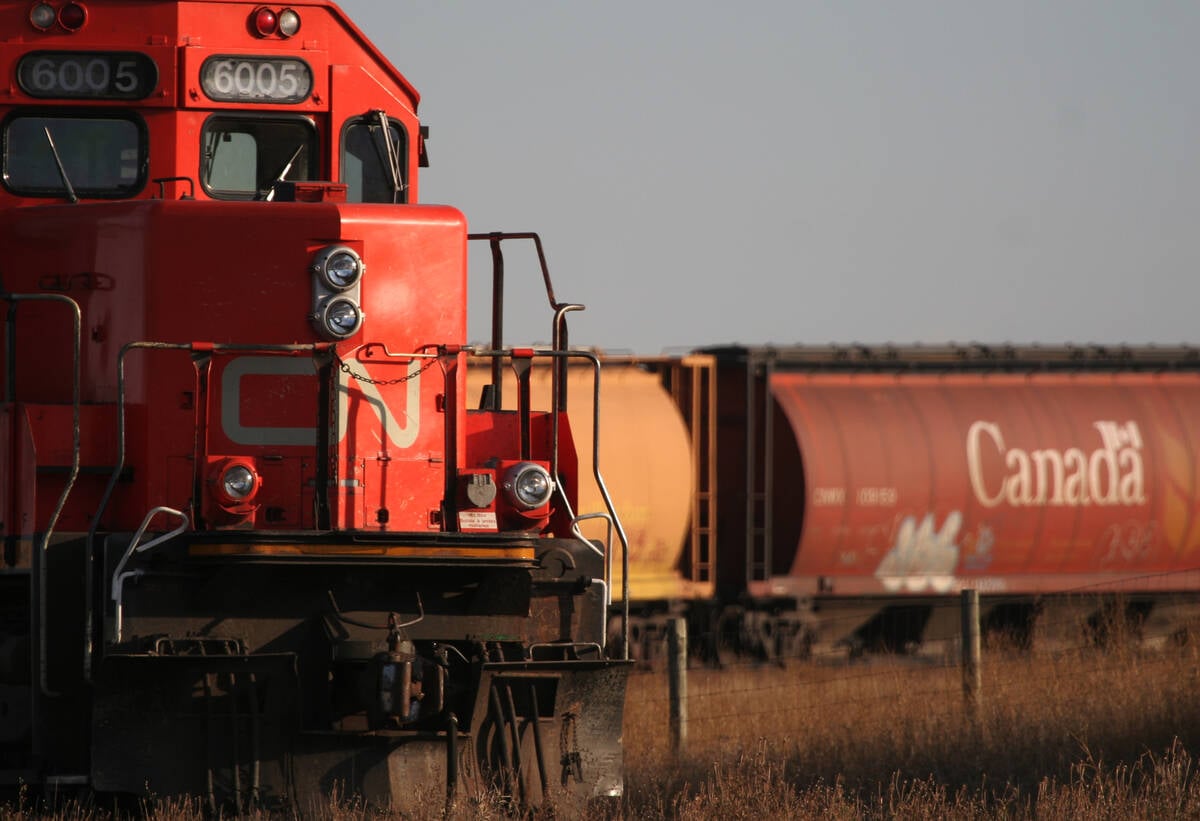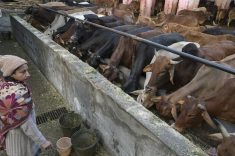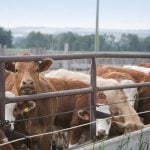Wearing blue jeans and sneakers, the boys walked into the agriculture minister’s office, bold with the sincere optimism only found in the young.
They emerged 45 minutes later with cheeks slightly redder and faces somewhat downcast.
Harley Shepherd, 13, and Daniel Kliever, 14, farm kids who live just east of the Saskatchewan border near Elkhorn, Man., want the Manitoba government to
enforce tougher regulations for hog farms.
“We didn’t get the response we wanted,” said Kliever, holding onto his Adidas jacket in the legislature’s dim, echoing marble corridors.
Read Also

Canada-U.S. trade relationship called complex
Trade issues existed long before U.S. president Donald Trump and his on-again, off-again tariffs came along, said panelists at a policy summit last month.
“We were hoping for more of a definite, ‘It’s going to stop,’ or that there would be regulations in place.”
But after their first brush with political disappointment, the boys left determined rather than
cynical.
“It’s not like we’re going to give up or anything,” Kliever said.
They believe that a new voice, the voice of the next generation, can make more people pay attention to what critics of the hog industry have been saying for years.
But the main impetus that started their political journey was the smell outside Shepherd’s house.
Carried downwind to his farm from several large hog operations, the aroma is like “a combination between when you fart, and rotten socks,” Shepherd said.
It’s a smell that makes him and his friends want to stay indoors. And he worries the odor worsens the allergies of his little sister Samantha, 10.
“It’s disgusting. It’s terrible, and there’s no need for it,” he told reporters at a news conference held before their Jan. 17 meeting with Rosann Wowchuk.
Showing acumen beyond his years, Shepherd brandished a government discussion paper about livestock expansion, opening the light green booklet to a message signed by three cabinet ministers.
“The Manitoba government has a responsibility to guide this development, and ensure that industry growth does not occur at the expense of the environment or our quality of life,'” he read.
Looking up at the television cameras and assembled adults, he described, in his own words, how he feels the government failed his family, which is frustrated with the odor.
The boys have done their homework. Shepherd handily rhymes off concerns about the risks of ground water pollution from hog manure, the rate of injuries and illnesses for workers, and the conditions of sows kept in farrowing crates.
Their presentation was based on a report they wrote for their Grade 8 science class.
The report, which earned them a grade of 95 percent, concluded that governments should create regulations, not just guidelines, to force barn owners to use technologies to lessen the risk of pollution.
They used information gathered by Shepherd’s parents, John and Kim Shepherd, in an unsuccessful fight against more hog barns that will be built this spring near their farm at Kola, Man.
During the battle, John had turned to Hog Watch Manitoba for help. Harley went with him to a meeting of the group, which opposes industry expansion.
But after the seasoned activists involved with Hog Watch heard the young Shepherd speak about the issues, they knew he could help them spread their message.
The idea for the trip to Winnipeg was born.
“He’s very, very articulate for a 13-year-old boy,” said Vicki Burns, vice-president of Hog Watch Manitoba and head of the Winnipeg Humane Society.
Burns helped the boys to get an appointment with premier Gary Doer and made sure their visit with Wowchuk made the news.
Shepherd admitted he felt nervous before the news conference, but he quickly found his sea legs, speaking with more passion and candor than most veterans of scrums.
“It’s just like talking to someone about it, like I normally would,” he said afterward.
Talking to the minister was no different, Kliever said: “She’s an
ordinary lady.”
The boys said they know their age gave them a unique chance to raise awareness about hog barns among urban people.
“When adults come in, the government can just kind of brush them aside,” said Shepherd, explaining that it’s not good public relations for governments to ignore the future generation.
That’s why he felt compelled to make the trip to the Legislature.
“I sort of thought if I just sit and be passive on the issues … it’s not going to do much.”
Besides, he told reporters earnestly, he thought he would learn a lot from the journey.
That’s when his dad, sitting behind the cameras, piped up with another motivation for the trip. “And he wants the premier’s job in 10 years.”














